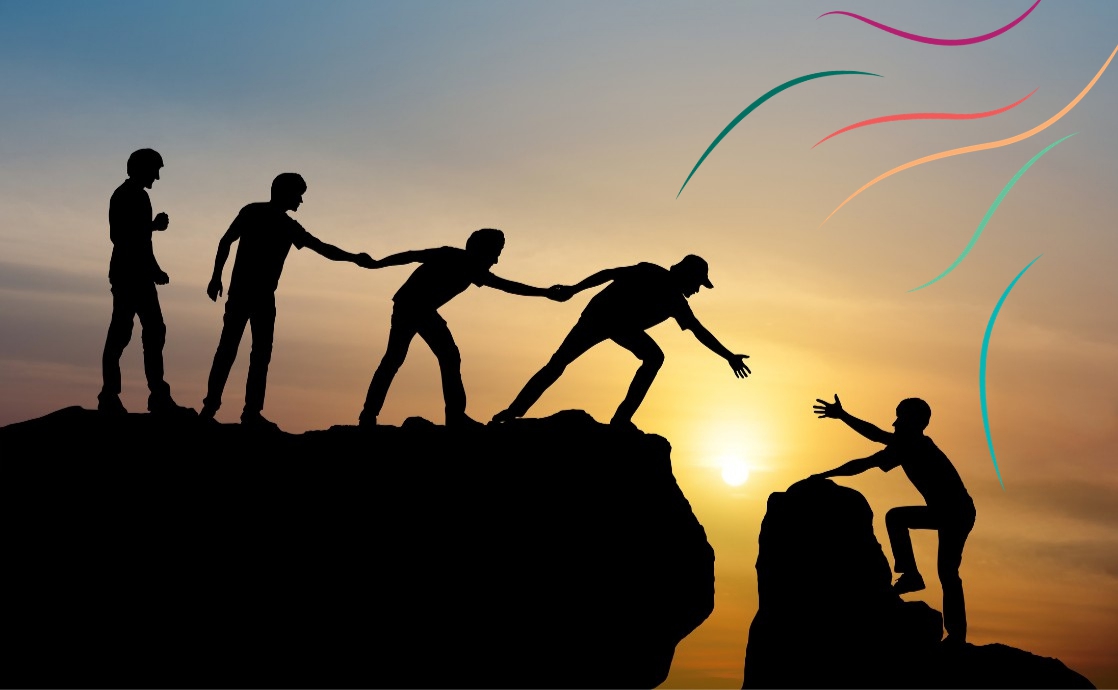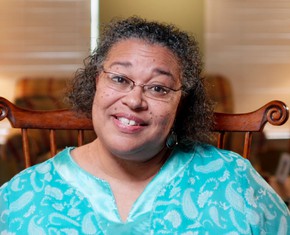The views expressed in our content reflect individual perspectives and do not represent the authoritative views of the Baha'i Faith.
Today, we can feel the pressures of conflict blasting from all directions. How can we prevent the forces of corruption, injustice, and disunity from tearing our democracy to pieces?
RELATED: What Does ‘Unity’ Really Mean?
While it acknowledges that democracy is not necessarily an ideal system, the Baha’i writings highly praise it as a system of government, saying:
Under an autocratic government the opinions of men are not free, and development is stifled, whereas in democracy, because thought and speech are not restricted, the greatest progress is witnessed.
They also say that that democracy “will be able to realize it and the banner of international agreement will be unfurled.”
For years, I did not participate in elections. Looking back, I was not following civic issues seriously. Also, apathy may have played a role in not fulfilling my civic duty. I live in Canada, and in the last decade, I paid close attention to policies and in which direction I would like the country to move forward. Being mindful of the Baha’i principle of examining a candidate’s character, and not considering party politics, now I participate in national, provincial, and municipal elections.
RELATED: Why Baha’is Don’t Participate in Partisan Politics
Democracy as a system of governance first appeared in the 5th century B.C.E. to denote the political systems then existing in Greek city-states, notably Athens, to mean “rule of the people” in contrast to rule by the aristocracy. It spread its wings after World War II. In 1950, there were only a handful of democratic countries, but by 2007 there were 123 electoral democracies. Though liberal democracy started in western countries, it is spreading across the globe. Democracy is now deeply rooted in both Mauritius, where I was born, and Canada, where I live.
Today, fair and free elections have become the foundation of modern life — so much so, that we often take them for granted. Although our democracies are far from perfect, and injustice and corruption still prevail in many election systems, there is a greater focus on citizens actively participating in making choices for their country, protecting human rights, and making those rights equal for all.
But democracy thrives only through the proper functioning of institutions, such as the judicial system, police, and human rights — such as freedom of expression, racial and gender equality, freedom of religion, marriage, education, and so on. These edifices of modernity are crucial, and their significance cannot be underestimated. Social activists around the world have devoted their lives and resources to preserving the integrity of these pillars.
RELATED: How Community Activism Opened a White Nationalist’s Eyes
Alarm bells ring when politicians attempt to destroy these institutions to gain or maintain their own power. Some folks declare war on society’s ills by promising to protect workers’ rights, tax corporations, enforce safety, or help the poor — but often, after eliciting the sympathy of the majority, abuses follow. According to Freedom House, “starting in 2005, there have been eleven consecutive years in which declines in political rights and civil liberties throughout the world have outnumbered improvements, as populist and nationalist political forces have gained ground everywhere.”
One has to recognize that institutions alone cannot build democracies. Strong values embedded in people’s consciousness make true democracy happen.
What will guard the integrity of these institutions are the values enshrined in the constitutions of each country. Each country’s charter is a unique configuration reflecting its own national, historical, and cultural flavor. But by and large, the people of every country have common values and desires for themselves and their families.
The success of modernity requires certain mindsets, such as respect for the rule of law and institutional processes. Baha’u’llah, the founder and prophet of the Baha’i Faith, wrote the charter for many administrative institutions that Shoghi Effendi, the Guardian of the Baha’i Faith, described as “necessary institutions through which the integrity and unity of His Faith can alone be safeguarded.”
Baha’u’llah mandated that members be democratically elected to these institutions, and established many strict rules and guidelines for how they should serve the affairs of a community. In this way, the wider community can come to trust and rely on its institutions to protect their interests, knowing that institutions are led by spiritual values. Then, he said, people should behave towards these institutions “with loyalty, honesty and truthfulness.”
When trust in authorities is established, the results — whether electoral or judicial — are respected, and everyone abides by the decisions even though some of the population may not agree. This kind of respect shows the maturity of a country. While once, disputes over power would have resulted in a bloody, prolonged war, we are beginning to find ways to settle conflict. While still far from perfect, it is a sign of a new consciousness.
The Baha’i Faith emphasizes that the proper functioning of institutions, whether at local or global level, is essential to achieve our collective glorious future. The Baha’i writings state that:
Mankind must continue in the state of fellowship and love, emulating the institutions of God and turning away from satanic promptings, for the divine bestowals bring forth unity and agreement whereas satanic leadings induce hatred and war.
While Baha’is do not believe in a physical devil, these “satanic promptings” refer to people’s selfish, opportunistic desires, which often lead to the suffering of others.
To do my part in saving the world from opportunists and upholding Baha’u’llah’s ideal of “loyalty, honesty and truthfulness,” I did two things: I killed my own apathy, and I voted for the candidate I believed to be the best fit for office. In the last five years, I have voted in every municipal, provincial, and federal election. I do not belong to any political party; I do not vote for candidates based on their political parties, but rather on their character.
When it comes to the oneness of humanity, building the right institutions is essential. Inclusivity, harmony, justice, and prosperity will slowly but inevitably envelop the world.
















Comments
Sign in or create an account
Continue with Googleor